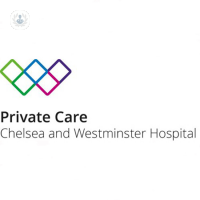Colic
What is colic?
Colic is often associated with infants, but it can occur in adults too. Infant colic occurs in some babies during their first months. Colic is defined by a baby crying with no obvious cause, with the crying lasting for more than three hours a day, for at least three days a week for at least one week.
There are different types of adult colic, such as biliary colic, renal colic and intestinal colic. Essentially, adult colic refers to intestinal or urinary system pain. This pain can occur once, or recur for weeks, months, or even years after the initial pain.
- Biliary colic: is produced by the distension of the gallbladder, usually by a gallstone.
- Renal colic: sudden and intense pain caused by kidney or urinary stones.
- Intestinal colic: cramps in the intestines, caused by a blockage in the large or small intestine.

What are the symptoms of colic?
There are quite a few symptoms that babies with colic will present with. These include:
- crying for no apparent reason for long periods of time
- a distended abdomen
- passing gas
In adults, biliary colic is often caused by gallstones, which block the bile ducts between the gallbladder and liver, causing inflammation and pain under the right breastbone and in the abdomen. Symptoms of renal colic can include sudden and intense pain, caused by kidney or urinary stones, and is usually located on one side, where the kidney stones are located. Other symptoms might include; nausea, pain when urinating, and vomiting.
Symptoms of intestinal colic: intestinal cramps, caused by a blockage in the small or large intestine, causing vomiting, nausea, diarrhoea, loss of appetite and bloating.
What causes colic?
The exact cause of infant colic is not known. However, some possible causes can be that the baby has trapped gas, is in a fussy mood because they are experiencing muscle spasms as their digestive system grows, or they are oversensitive to environmental stimuli, causing them to become distressed.
The cause of biliary colic in adults is mainly caused by gallstones. These bile stones block the bile ducts leading to pain and inflammation.
In the case of renal colic, the main cause is the accumulation of salts in the urine (kidney stones). Intestinal colic is caused by blockages in the large or small intestine. The blockages may be the result of an inflammatory intestinal disease like Crohn’s disease or IBS.
Can colic be prevented?
Yes, it can be prevented. To prevent infant colic, it is advised to hold the baby upright after eating, tapping on the back to eliminate any gas. In adults, biliary colic is usually related to gallstones, so controlling risk factors for gallstones can help, such as controlling your weight and following a low-fat diet.
To avoid renal colic, it is recommended to drink plenty of fluids and reduce salt intake. It is recommended to drink between eight and 10 glasses of water a day and to cut back on soft drinks that contain phosphoric acid. In cases where the patient suffers from intestinal colic, any underlying conditions (such as IBS) that contribute to the cramps and painful muscle spasms should be properly treated.
What are the treatment options for colic?
A number of things can be done to treat infant colic. Parents are advised to sit their baby upright during feeding, so the baby swallows less air and remember to tap the baby on the back to help them burp any gas that might get trapped after feeding. Calming your baby’s senses may also help them to stop crying. Rocking your baby, holding them in a soft blanket and gently massaging their back can help to soothe them and calm them down.
Pain medication can be prescribed for biliary colic at first. Then, a fat-free diet will gradually be put in place for the patient suffering from biliary colic. If the gallbladder becomes severely painful and inflamed, then surgery to remove the gallbladder will be advised. The surgery can be done with a laparoscope and the patient can go home on the same day.
To relieve renal colic caused by kidney stones, shock wave lithotripsy (shock waves target and break up the stones, so they can pass in the urine) or a ureteroscopy (a lighted scope is placed into the urethra and bladder to remove the stone) can be used.
To investigate intestinal colic, the specialist will look into family history, the patient’s own medical history and can perform X-rays, ultrasounds and CT scans to see if there is any blockage in the intestines. If a blockage is found, it will be treated accordingly.
Which specialist can treat colic?
Paediatricians and gastroenterologists are the specialists that can treat colic in both children and adults.
How long does colic in babies last?
Commonly, colic in babies peaks when they are about six weeks. It should not last longer than four months, with the symptoms gradually becoming less noticeable after around 12 weeks.
When does my child's colic become a medical emergency?
Patients should seek emergency medical attention for their baby if they notice that their baby is not growing or putting on weight as expected. It is also a medical emergency if the baby still has colic symptoms after four months of age. If parents notice that their baby has a high-pitched or weak cry, they should also visit the doctor immediately.
When should adults who have colic contact a doctor?
If adults with colic notice any of the following symptoms, they should seek urgent medical help:
- an inability to drink without vomiting
- persistent vomiting
- high temperature accompanied by chills
- rapid heart rate
- jaundice
- intense abdominal pain that cannot be relieved easily









